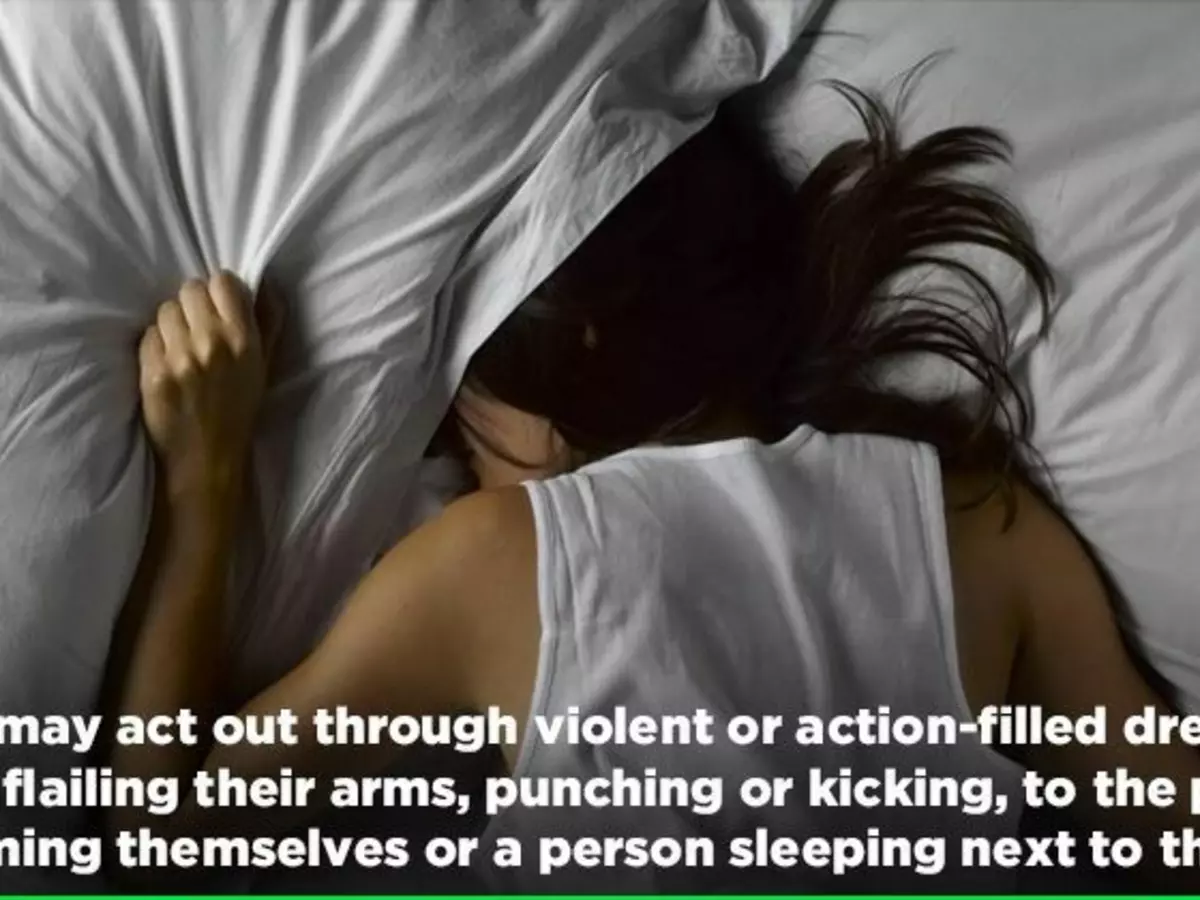Are You Kicking And Yelling In Your Sleep? Anxiety Or Stress Might Be The Reason
A post-traumatic stress disorder or anxiety can often lead to violent sleep disorder or sleep behaviour disorder.

Are you someone who kicks and yells during your sleep? While you may have zeroed it down to having a nightmare, did you know that is indicative of a violent sleep disorder?
A post-traumatic stress disorder or anxiety can often lead to violent sleep disorder or sleep behaviour disorder revealed a recent study.

Wattpad
The study found that men are also likelier to have this disorder, according to the journal of Neurology, the medical journal of the American Academy of Neurology.
The study found that when a person experiences rude, discourteous, impolite colleagues at the workplace, they tend to ruminate more about work at home. They also face trouble falling asleep or may wake up in the middle of the night.
This also affects the spouse or partner, only when the couple works in the same company or occupation, the researchers said. It is "because work-linked couples have a better idea of what's going on in each other's work, they can be better supporters", said Charlotte Fritz, Associate Professor from the Portland State University in the US, as reported by IANS.

Earth.com
"They can talk about work, vent about it, discuss it, but then they should make an explicit attempt to unwind together and create good conditions for sleep," she noted.
"They probably know more about the context of the uncivil act and might be more pulled into the venting or problem-solving process," she added, in the paper detailed in the journal Occupational Health Science.
While organizations do everything in their power to create a civil culture at the workplace, it¡¯s not completely something that¡¯s avoidable. That¡¯s why it¡¯s ideal to spend time with your family and friends outside of work and practice calming techniques like meditation to maintain your sanity.

Latestly
The participants in the study were asked, "Have you ever been told, or suspected yourself, that you seem to act out your dreams while asleep?"
Researchers found those with the disorder were over two-and-a-half times as likely to report taking antidepressants to treat depression, with 13 percent of those with the disorder taking them compared to 6 percent of those without the disorder, reported ANI.
People with the disorder were also two-and-a-half times as likely to have post-traumatic stress disorder. They were twice as likely to have mental illness, and over one-and-a-half times as likely to have psychological distress.

parkinson.org
The study also found that men were twice as likely as women to Rapid Eye Movement (REM) sleep behavior disorder. While 59 percent of people having the disorder were men, 42 percent were women.
People with possible REM sleep behaviour disorder were 25 percent more likely than those without the disorder to be moderate to heavy drinkers, with 19 percent of those with the disorder moderate to heavy drinkers compared to 14 percent of those without the disorder.
They had slightly less education, an average of 13.2 years of education compared to an average of 13.6 years for those without the disorder. They also had lower income and were more likely to have smoked.

healthwnews
"Our research does not show that these risk factors cause REM sleep behavior disorder, it only shows they are linked. Our hope is that our findings will help guide future research, especially because REM sleep behavior disorder is such a strong sign of future neurodegenerative disease. The more we understand about REM sleep behavior disorder, the better positioned we will be to eventually prevent neurologic conditions like Parkinson's disease," concluded study author Postuma.
